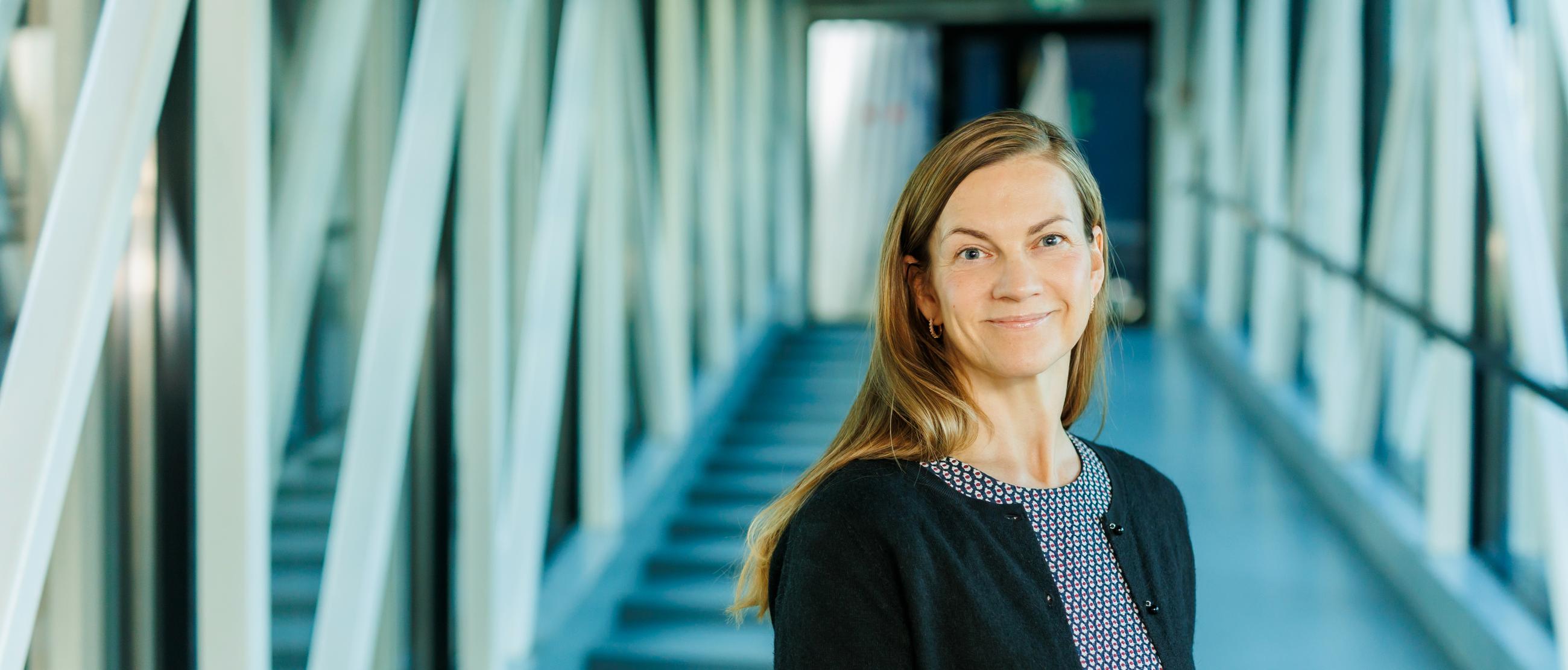Ingrid Sindi: Working at a children’s home in South Estonia made me want to contribute to the development of the field
In her dissertation, Ingrid Sindi, a doctoral student from the School of Governance, Law and Society of Tallinn University, focused on the discursive practices of child institutional substitute care in SOS Children’s Village Estonia. Ingrid found this topic while working at a children’s home. She wanted to do her part and make the field of child protection more child-centric.

How did you come up with this topic during your studies?
I was doing my Master’s degree in Social Work at the University of Tartu. And I remember hearing my lecturers talk about a variety of new interesting topics in my social work and child protection lectures, such as child-centric approach, children’s rights, children’s participation in society. At the same time, I was working as a social worker and later as a manager in a children’s home in South Estonia, and, while there, I started thinking about the things I had heard in my lectures. That is what lead me to the fascinating subject of practices of child substitute care – a child-centric approach. A Master’s thesis, however, was not enough. In principle, I continued my research on the same topic in my doctoral studies, where I shifted the focus onto children separated from their birth families and their rights, wellbeing and general fulfilment in life. In conclusion, I think I can say that deep personal interest is the reason behind the choice of topic as well as the wish to do my part in helping the field develop.
Writing a doctoral thesis is a huge undertaking and definitely needs constant self-motivation. What’s your trick? How were you able to consistently work on it to achieve a successful final result?
I was writing my thesis while working full-time and living family life, so staying healthy and continuing to make progress was what I was aiming to do. My supervisors were also very supportive of this mindset. At the same time, the various sub-studies I conducted for the thesis were interesting; they offered a break from everyday work life. The ethnographic study at the substitute home had me especially hooked – taking notes, interviewing, storytelling with the children, etc. Inevitably, data analysis and writing did sometimes take up entire evenings and even nights, as did reading specialist literature, so I can’t say I didn’t get tired at times. Another thing that helped me reach my end goal was dividing a big task into smaller parts. For example, today, I will code five interviews and tomorrow, another five. The magic words for staying motivated, however, were most likely being interested in my topic as well as the process.
Please describe a memorable or funny event that happened while you were writing your thesis.
There were many fun moments, but telling stories with the children and communal activities during field work are the most memorable. In general, I believe that adults not only teach children, but children also teach us. Adults actually have a lot to learn from children’s experiences. During my interviews, for example, one of them told me about the sheep, goats and three-legged pig in the place where they grew up. They also told me about sheep jumping into people’s laps and pigs swimming. For a city girl like me, their stories seemed unbelievable but also sparked an interest to learn more about the behaviour of animals. And of course, my belief that children’s experiences should be taken seriously was validated.
How is your research going to change the world?
The primary argument in my thesis, which draws upon theories of childhood sociology, is that children’s agency in substitute care should be taken a lot more seriously. The biggest difference between this conception compared with other childhood theories is that it puts the child’s agency, their activity and their ability to make choices for themselves first. On both an academic and a practical level, this approach encourages us to treat children not as in need or at risk, but as active social agents. Furthermore, my dissertation emphasises the importance of ideas and phrases used everyday in substitute care. For example, what does it mean to care for a child or to love them? How are these feelings expressed in the everyday life of substitute care? We must not forget that children, as active social agents, create meaning from what they see, hear and experience. Children have to be allowed to speak or express their attitudes in other ways about the relationships they deem important as well as about the meaning of love and care.
How well are the voices of scientists and young researchers heard in our society?
I think there are more and more ways and channels in which to make your voice heard. At Tallinn University, for instance, they have one-minute lectures, seminars, conferences and panels to raise your topic and offer it up for discussion.
What are the most important values and beliefs that you live by?
I hold goodheartedness, respect and gratitude in high regard. I think these are values that help a person grow and work well with others. There are no strict beliefs that come to mind. The beliefs I hold are constantly changing throughout my life.
Please tell us about a book that you recently read and would recommend to others. Why would you recommend it?
A book I read recently was Eckhart Tolle’s A New Earth: Awakening to Your Life’s Purpose. I recommend this book to those interested in rejecting the pull of the material world or in rising above ego consciousness. The book demonstrates the simple steps you can take to be content with your life on a daily basis.